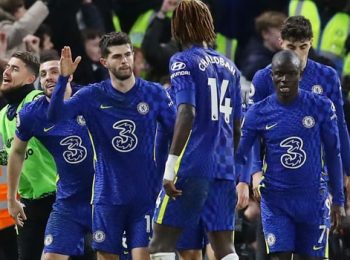Morocco’s coach Walid Regragui finds himself sidelined for two consequential matches during the Africa Cup of Nations. This decision, announced mere hours before Morocco’s pivotal group stage finale, comes in the wake of a heated confrontation involving Regragui and Democratic Republic of Congo’s captain, Chancel Mbemba, post their Group F clash in San Pedro.
The incident, which escalated beyond a mere exchange of words to involve physical altercations among players and staff on the field, and reported skirmishes off the public’s radar in the stadium tunnel, has cast a shadow over the tournament’s spirit.
Regragui, celebrated for piloting Morocco to an impressive semi-final run in the 2022 World Cup, found himself at the center of controversy when what began as a customary post-match handshake with Mbemba, morphed into a tense standoff.
Sources reveal that the confrontation initiated when Regragui, in an apparent gesture of sportsmanship, extended his hand to Mbemba but held on, seemingly using the moment to express grievances, leading to a struggle that caught the attention of both teams.
This event has not only incited on-field chaos but has also drawn the scrutiny of the Confederation of African Football, culminating in the suspension of the Moroccan coach.
As the news breaks, Morocco’s football federation is not standing by idly. A statement confirmed their intention to appeal the suspension, emphasizing the critical timing of the decision. Morocco is poised to face Zambia in a match set in San Pedro, a game that will not only decide the fate of the team in this year’s Africa Cup of Nations but also mark the conclusion of the group stage.
In a tournament celebrated for showcasing the spirit of African football and unity, this altercation and the subsequent suspension of a high-profile coach like Regragui have brought an unexpected twist. As the situation unfolds, all eyes are on the Confederation of African Football’s response to the appeal, and on San Pedro, where Morocco, albeit without their strategic leader on the sidelines, will endeavor to seal their position in the tournament against Zambia.
The incident and its fallout, transcending the boundaries of the pitch, have become a talking point, overshadowing the anticipation of the upcoming matches. The football fraternity will keenly await the outcome of Morocco’s appeal, and how this unforeseen disciplinary action shapes the narrative of this year’s Africa Cup of Nations.
























